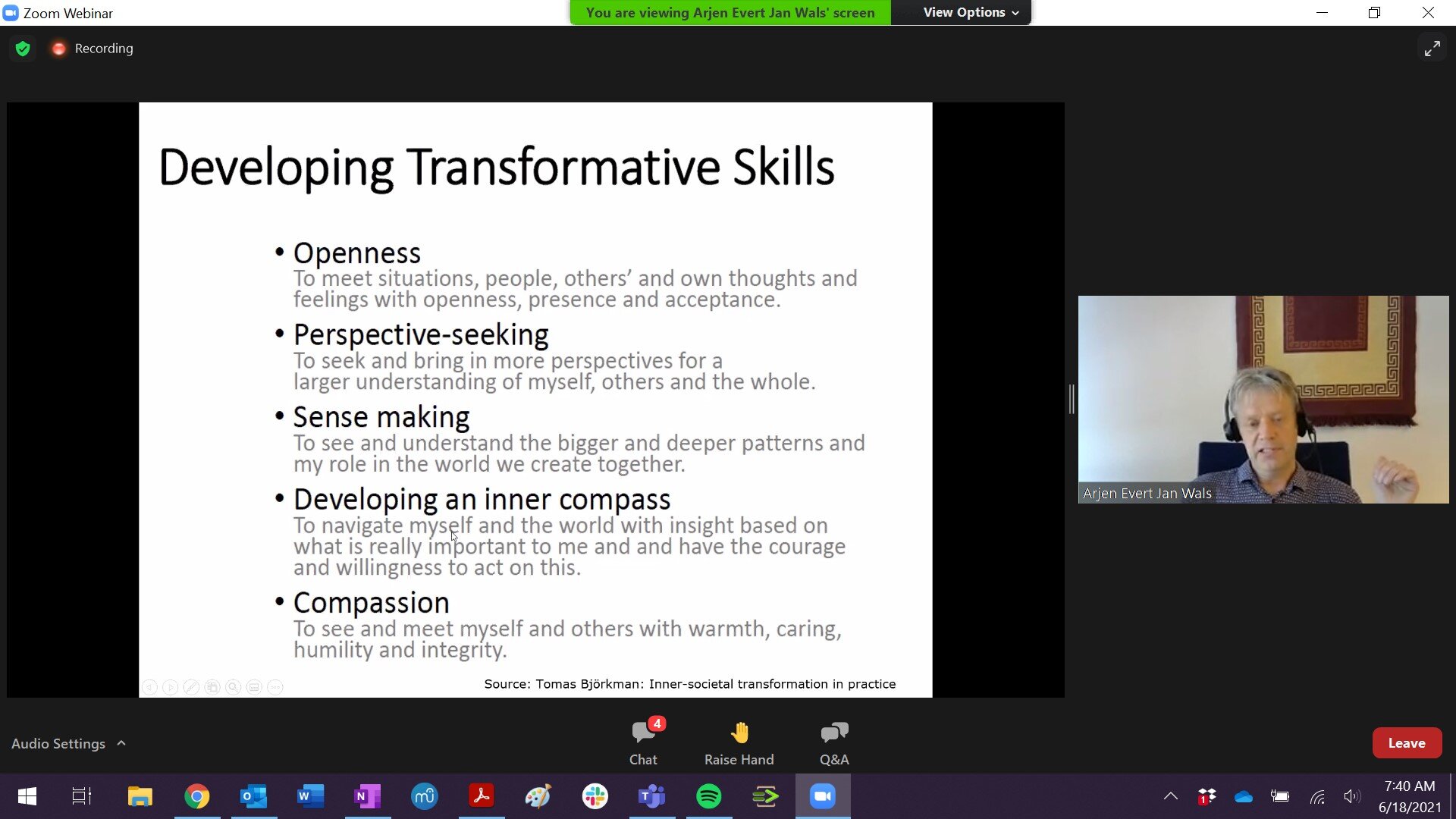World of Talent 2021: Moving Forward Stronger
International Conference on Talent Development and Honors Education (Online, hosted in Groningen, Netherlands)
On June 16-18 I attended and presented at World of Talent 2021: Moving Forward Stronger. This conference was originally scheduled for last Summer, but was re-imagined in the face of the COVID-19 crisis. I had a paper accepted to the 2020 event, and unfortunately, it was dropped as the conference was reworked. However, I had an opportunity to submit a “Wild Card” proposal shortly before the event, and my short workshop “Building Skills Through Ungrading” was accepted. This, I think was a stronger project anyway. I presented it on Thursday, June 17, and received some very nice feedback.
The conference was scheduled with the Central European time zone in mind, which is six hours ahead of EDT. The morning sessions began at around 3:00 AM for me, and I will have to catch up when the recordings become available. After the first day’s afternoon and evening sessions, I realized how US-centered my presentation was. European scholarship, I found, had a significantly different orientation, which was refreshing, but highlighted how narrow my perspective was. This is something to meditate on in the coming months… particularly as I hope to deepen my connection with the European Honors Council.
I am still unpacking the material from the conference but some highlights included a stirring keynote session with John Zubizaretta. It was a real privilege to see the master at work, and I so appreciated his message that “nothing should be more important than student learning.” I am very interested in looking more deeply into the strengths-based approach mentioned in Tracey Riley and Aniek Hilkins’s presentation (an ARC Explores webinar I attended on April 30, “Resilience Programs in the Context of Covid-19” also talked about “strengths-based resilience”) and I found Maria Tarasova’s talk about critical visual thinking particularly useful. I especially liked her thesis that “art is a form of thinking.” I teach critical listening in my honors and gen ed courses, and it looks like her ideas could fill out and strengthen my methods.
The final two sessions also made an impact. Joseph Renzulli’s assertion that “many more children have potential than those accepted to gifted programs” resonated deeply with my egalitarian values. He began by outlining three essential principles: apply knowledge to areas of personal interest, consider how people like to learn, and consider how young people like to express themselves—without too much stretching, it’s pretty easy to connect these to purpose, mastery, and autonomy. Later in the session, he chuckled and admitted that he had borrowed these ideas from extracurricular activities. A basketball club, for example is interest-driven, concerned with developing skills, and directed toward a (public-facing!) product. I suppose we could add that it’s up to the players how to achieve the goal of winning the game: thus, they have “autonomy in the means, but not the ends,” as Amabile recommends.
Finally, the closing session with Arjen Wals, which considered, “what does it mean to be excellent on a dying planet?” was particularly rich. I especially appreciates his comments about the Common Good, a topic we address in HNR 4900, and which I’m increasingly incorporating in the gen ed and music major courses. “What do we need to be successful,” he asked, “and to what end?” He outlined a three-part model for education that included Socialization, what is worthwhile for society (the Common Good); Subjectification, concerning personal identity, mission, and responsibility (mostly ignored, but critical for sustainability); and Qualification, concerning what we typically think of as education (he mentioned systems thinking physics, SOTL, etc.). I would like to make the first two items central to my methodology going forward, and he advised that we seek to complicate things, not simplify them.
There was a great deal more about sustainability, and it was so refreshing to hear someone say that we would all have to learn to live with less, essentially: to live with in the “ecological ceiling.” I have had similar thoughts with regard to health care, etc. in the US: we need to be willing to give up some of our standard of living so that everyone can be better off… it’s hard to imagine anyone in the US giving anything up, though. That isn’t our brand.
I forget who mentioned Lambert and Felton’s Relationship-Rich Education, but I picked up a copy after the conference, and I am loving it. I was also inspired to dust off my copy of Pedro Arrupe’s “Men and Women for Others,” which I’m thinking of incorporating into HNR 1103 as a final reading for my unit—I have struggled with the “what now?” piece. In all, this was an energizing conference, and I am grateful for the opportunity of attending.
